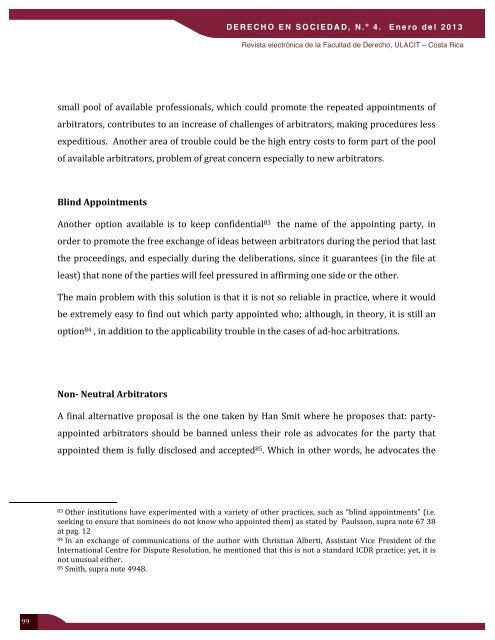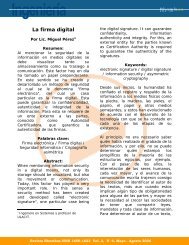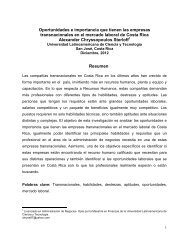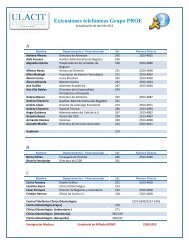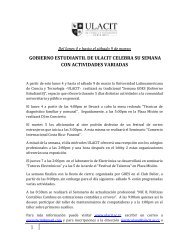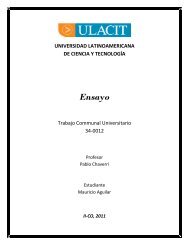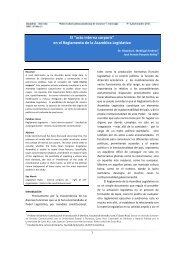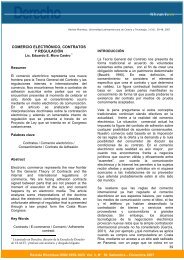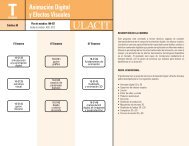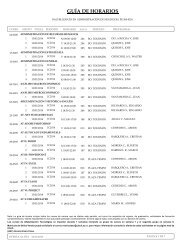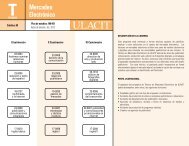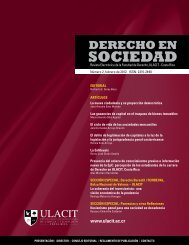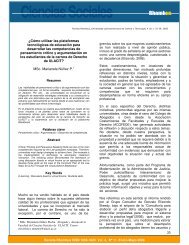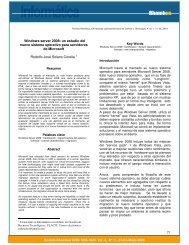IV Edición Revista Derecho en Sociedad - Ulacit
IV Edición Revista Derecho en Sociedad - Ulacit
IV Edición Revista Derecho en Sociedad - Ulacit
Create successful ePaper yourself
Turn your PDF publications into a flip-book with our unique Google optimized e-Paper software.
DERECHO EN SOCIEDAD, N. º 4 . Enero del 2013<br />
<strong>Revista</strong> electrónica de la Facultad de <strong>Derecho</strong>, ULACIT – Costa Rica<br />
small pool of available professionals, which could promote the repeated appointm<strong>en</strong>ts of <br />
arbitrators, contributes to an increase of chall<strong>en</strong>ges of arbitrators, making procedures less <br />
expeditious. Another area of trouble could be the high <strong>en</strong>try costs to form part of the pool <br />
of available arbitrators, problem of great concern especially to new arbitrators. <br />
Blind Appointm<strong>en</strong>ts <br />
Another option available is to keep confid<strong>en</strong>tial 83 the name of the appointing party, in <br />
order to promote the free exchange of ideas betwe<strong>en</strong> arbitrators during the period that last <br />
the proceedings, and especially during the deliberations, since it guarantees (in the file at <br />
least) that none of the parties will feel pressured in affirming one side or the other. <br />
The main problem with this solution is that it is not so reliable in practice, where it would <br />
be extremely easy to find out which party appointed who; although, in theory, it is still an <br />
option 84 , in addition to the applicability trouble in the cases of ad-‐hoc arbitrations. <br />
Non-‐ Neutral Arbitrators <br />
A final alternative proposal is the one tak<strong>en</strong> by Han Smit where he proposes that: party-appointed<br />
arbitrators should be banned unless their role as advocates for the party that <br />
appointed them is fully disclosed and accepted 85 . Which in other words, he advocates the <br />
83 Other institutions have experim<strong>en</strong>ted with a variety of other practices, such as “blind appointm<strong>en</strong>ts” (i.e. <br />
seeking to <strong>en</strong>sure that nominees do not know who appointed them) as stated by Paulsson, supra note 67 38 <br />
at pag. 12 <br />
84 In an exchange of communications of the author with Christian Alberti, Assistant Vice Presid<strong>en</strong>t of the <br />
International C<strong>en</strong>tre for Dispute Resolution, he m<strong>en</strong>tioned that this is not a standard ICDR practice; yet, it is <br />
not unusual either. <br />
85 Smith, supra note 4948. <br />
99


